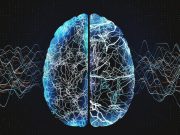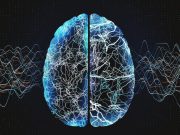Tag: Epilepsy
Seizure Frequency Improves Over Time in Treatment-Resistant Epilepsy
Two-thirds of patients had reduction in seizure frequency with addition of antiseizure medication
Automated Bottom-of-Sulcus Dysplasia Detector Combines MRI, FDG-PET
When the BOSD detector was trained on MRI+PET features, 87 percent of BOSDs were overlapped by one of the top five clusters in training set
Factors Linked to Risk for Sudden Unexpected Death in Epilepsy Identified
Risk increased with living alone, three or more generalized convulsive seizures in the previous year, longer postictal central apnea
Brain Abnormalities Seen in Epilepsy Patients With Psych Comorbidities
Higher prevalence of structural brain abnormalities and increased occurrence of interictal epileptiform discharges observed
Periodic Limb Movements Occur Frequently in Persons With Epilepsy
PLMs detected in 23 percent of those with epilepsy and 26 percent of those with OSA; older age linked to PLMs in those with epilepsy
Slightly More Than Half of Pregnant Women With Epilepsy See Neurologist in Year Predelivery
55 percent saw a neurologist in the year prior to delivery; they were more likely to be on a recommended antiseizure medication
Treatment Response to Antiseizure Medications Can Take More Than One Year
Most participants with newly diagnosed focal episodes achieve seizure freedom; 27 percent become seizure-free with first ASM
Sleep Apnea Increases Sudden Cardiac Arrest Risk in Children With Epilepsy
Increased SCA risk seen in association with long-term CPAP, while risk reduced with adenotonsillectomy
Subcutaneous EEG System Feasible, Acceptable for Monitoring Seizures
52 percent of the 754 seizures recorded on the subcutaneous system were not reported in patient diaries
Broad Support Seen for Newly Developed Epilepsy Surgery Guideline
Competency-based epilepsy surgery educational curriculum composed of domains of diagnosis, counseling, presurgical workup, surgical techniques














